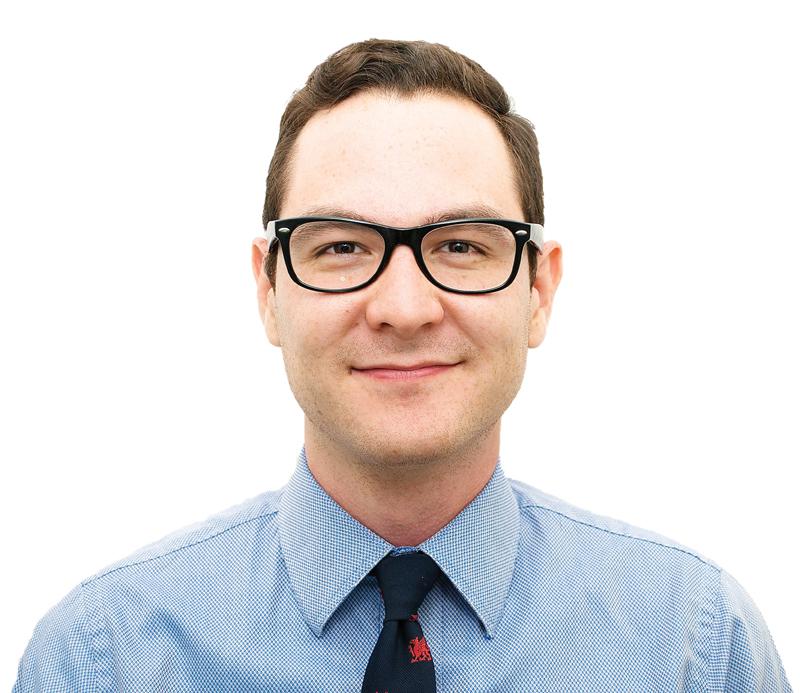Folmsbee: How to decide between an M.D. and a Ph.D., or both
November 17, 2015
Nearly all undergraduates studying the biosciences, from neuroscience to biomedical engineering, face the same conundrum. After graduation, is it better to apply for graduate school to get a Ph.D., or to apply to medical school to get an M.D.? Complicating things further, there is even the possibility of trying to matriculate into a combined M.D./Ph.D. program. Although these career paths all begin with taking basic biology and chemistry courses in college, graduate and medical could not be more different. Research and medicine require entirely unique skill sets for success. Importantly, both are big commitments, so the best action you can take right now to prepare yourself is to simply take the time to really consider what sort of work life you want to have, and sincerely reflect on what skills you can rely on. Many NU students in scientific disciplines will have to decide between a future in science or medicine. In either cases, it is clear that pursuing an M.D. and/or a Ph.D. can be either a dream or a nightmare.
I am currently starting my sixth year in the Northwestern M.D./Ph.D. program, so I have had the chance to observe the challenges of both graduate and medical school. During my time, I have seen students build the beginnings of a successful medical and research career, with both clinical skills and scientific prowess. But I have also witnessed the struggles and failures of many within the program. Some are woefully unprepared for the rigors of medical school, and others unwilling to commit to the tedium of graduate school research.
In many ways, getting both an M.D. and a Ph.D. can certainly be tempting. Most programs cover the entirety of medical and graduate school tuition, along with a livable stipend over the course of the entire program. Graduating with two degrees with no debt is a rare benefit, but these programs are an intensive commitment, often taking up to eight years to complete. And if you don’t absolutely love both science and medicine, it is easy to find yourself trapped in it.
From a medical perspective, graduate school and research can appear an easy addition. But getting a Ph.D. can be brutish, tedious and demoralizing. Often, it is not enough to simply have an interest in science; you must also have the skills to adapt to new experimental plans and build working collaborations. Even with those goals complete, communication skills are a necessity for any progress in academia. The best scientists spend a great deal of time politicking, networking with the leaders in their field and hoping they will favorably review their next grant or manuscript. And the same goes toward overcoming the smaller interpersonal hurdles of graduate school.
Similarly, from a research perspective, medical school is a deceptively straightforward endeavor. Classes are, for the most part, similar in structure to those taken at an undergraduate level, albeit much more difficult. But in medical school, it is often not enough to just work hard to get good grades. It is about rising above your competition on a national level. Medical school is just the stepping stone to a medical residency position, which is simultaneously much more competitive and much more important for the progression of your career. Your score on your first medical school board exam is not like any exam in college and is not even like the MCAT. It is a grueling test of all your medical knowledge boiled down to a single score that ultimately governs what medical specialties are available to you.
Furthermore, medicine is a team sport, and I’ve seen even the smartest students crushed under the weight of having to interact successfully with the dozens of people in a clinical setting. Being a doctor is not just diagnosis of disease and identifying the best treatment. It’s really about telling a patient they have a terminal illness, then talking to their family, then discussing the prognosis with the consulting physicians, then engaging day with the nurses on day-to-day management, then contacting social workers and then explaining to your next patient that you are sorry that you are late.
Medicine isn’t for everyone, and neither is research. Both represent vastly different careers, with separate benefits and challenges. A physician can find satisfaction in working with others to improve individuals’ lives. A scientist can find purpose in discovering something never before understood. Choosing between them takes time, and it should. And if you truly love these both, even when at their worst, and you know that you have the skills to excel at both, only then an M.D./Ph.D. may be your best option.
Sai Folmsbee is a Feinberg graduate student. He can be reached at [email protected]. If you would like to respond publicly to this column, send a letter to the editor to [email protected].
The views expressed in this piece do not necessarily reflect the views of all staff members of The Daily Northwestern.


